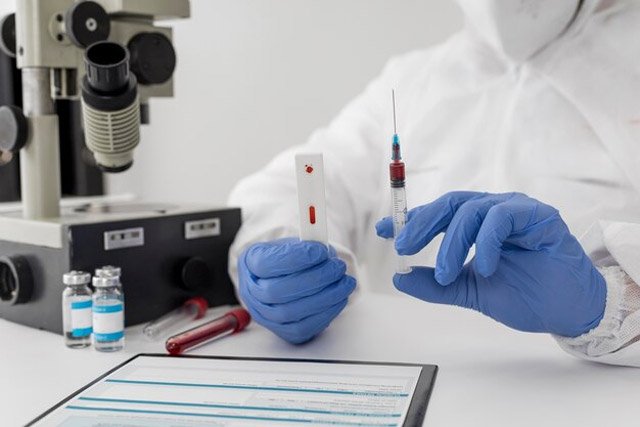In the ever-evolving landscape of cannabis products, a new THC variant has captured the industry’s attention – Delta 6 THC. As retailers strive to meet the demand for innovative products, the shelves are now adorned with offerings inspired by the successes of delta 8 THC. While delta 9 THC and delta 8 THC have long been staples, newer variants like delta 10, HHC, and the intriguing delta 6 are making their mark. In this comprehensive exploration, we unravel the mysteries surrounding delta 6 THC, examining its historical roots, molecular structure, potential effects, safety considerations, and how it stacks up against established counterparts.
1- Historical Odyssey of Delta 6 THC

1.1. Early Research:
The journey begins with a historical look into delta 6 THC, where chemists of the 1970s and 80s seemingly delved into its effects and metabolization. However, this trail goes cold post-mid-1980s due to a significant revelation – “delta 6 THC” was a misnomer for what we now know as delta 8 THC.
1.2. Nomenclature Shift:
The nomenclature shift from the monoterpenoid to the pyran numbering system redefined delta 1 as delta 9 THC, and delta 6 became delta 8 THC. Its proper identification date remains elusive.
2- Understanding Delta 6 THC

2.1. Molecular Structure:
Delta-6-tetrahydrocannabinol (delta 6 THC or Δ6 THC) stands as one of several THC isomers, sharing a molecular formula with delta 9 THC. Despite appearing nearly identical under a microscope, subtle molecular differences, including the relocation of a double bond, can significantly impact their effects.
2.2. Limited Research:
Unfortunately, limited research leaves the specific experience provided shrouded in uncertainty.
3- Available Products on the Market

3.1. Emerging Blends:
It has started making appearances in blends of hemp-derived cannabinoids, notably in products like gummies, vape carts, and disposable vapes.
3.2. Scarcity of Standalone Products:
Standalone products are scarce, often combined with delta 8, THCP, and other emerging compounds. Whether this scarcity results from production challenges or marketing strategies remains unclear.
3.3. Potential Product Types:
While gummies, vape carts, and disposable vapes containing it are on the market, standalone tinctures or products exclusively featuring it are yet to be widely available.
4- The Psychoactive Potential

4.1. Assumed Psychoactivity:
While it is presumed to be psychoactive, a scarcity of research into its potency and psychoactive activity leaves the true nature of its effects shrouded in mystery.
4.2. Anecdotal Claims:
Anecdotal claims suggest its intensity may rival delta 8 THC, but without concrete evidence, its psychoactivity remains uncharted territory.
5- Potential Effects and Safety Considerations

5.1. An Elusive Understanding:
Historical misattributions in academic studies complicate efforts to discern the effects of delta 6 THC.
5.2. Anecdotal Suggestions:
Anecdotal suggestions of anti-inflammatory properties lack substantiating sources.
5.3. Safety Concerns:
Its safety is unknown, emphasizing the importance of obtaining products from reputable retailers with transparent safety testing.
6- Comparison with Delta 8 THC and Delta 9 THC

6.1. Distinctions in Research:
Its primary distinction with delta 8 THC lies in the level of research supporting them.
6.2. Unverified Claims:
Claims regarding potency remain unverified, with some suggesting similarity to delta 8 THC and others proposing a milder experience.
6.3. Comparison with Delta 9:
Comparisons with delta 9 THC position delta 6 as potentially less potent, though empirical evidence is lacking.
7- Potential Impact on Drug Tests

7.1. Metabolization:
All THC isomers, including this, may convert and be stored as THC-COOH in the body, the metabolite sought in drug tests.
7.2. Cautionary Measures:
To err on the side of caution, discontinuing all hemp or marijuana use is advisable before a drug screening.
8- Additional Tips

- Educate Yourself: Stay informed about the latest research on it to make informed decisions.
- Choose Reputable Retailers: When purchasing Delta 6 THC products, opt for reputable retailers with transparent testing and manufacturing practices.
- Start Slow: If trying it for the first time, start with low doses to gauge its effects on your body.
- Monitor Regulations: Keep an eye on evolving regulations regarding THC variants in your region.
- Consult Professionals: When in doubt, consult with healthcare professionals or cannabis experts for personalized advice.
Conclusion:
Delta 6 THC emerges as a captivating addition to the world of cannabinoids, offering a unique perspective on potential effects and benefits. As research continues, consumers should approach Delta 6 THC products cautiously, seeking information from reputable sources and staying abreast of the dynamic regulatory landscape surrounding these emerging cannabinoids. As the cannabis industry continues to explore new frontiers, delta 6 THC stands as both an enigma and an opportunity. Users are encouraged to approach this novel cannabinoid with curiosity, caution, and a commitment to staying informed. As research progresses, the full spectrum of delta 6 THC’s potential may come into sharper focus.
FAQs:
It was once misattributed to delta 8 THC, leading to a historical misnomer. Early research in the 1970s and 80s fueled initial interest in its effects.
Standalone products exclusively featuring it are currently scarce. Blends with delta 8, THCP, and other compounds are more common.
While presumed to be psychoactive, limited research leaves the true nature of psychoactivity uncertain.
Its safety is unknown. Consumers are advised to obtain products from reputable retailers with transparent safety testing.
Its difference with delta 8 and delta 9 THC is based on the level of research. Potency claims remain unverified, and further empirical evidence is needed.
Yes, all THC isomers, including this, may convert and be stored as THC-COOH in the body, which drug tests seek out.




